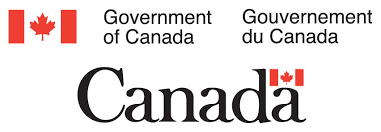The National Research Council Canada (NRC) is seeking a solution for reagents required for nucleic acid sample preparation and rapid and efficient SARS-CoV-2 Ribonucleic Acid (RNA) extraction in order to perform downstream molecular diagnostics of COVID-19 with capability to integrate within existing and/or potential microfluidic platforms for sample-to-answer solutions that can be deployed on the frontline for rapid testing.
Diagnostic testing for COVID-19 is heavily reliant on the important pre-requisite of viral RNA extraction from clinical samples. This currently the bottleneck for downstream reliable molecular detection using RT-qPCR. In addition, various medical device platforms – including microfluidic systems and automated sample preparation – are dependent on appropriate buffer and reagent formulations for diagnostic assay development.
Desired Outcomes and Considerations
Essential (mandatory) Outcomes
The solution must:
- Phase 1
- Demonstrate a method for reagents formulation that is scalable and rapidly adaptable/customizable for different viral threats.
- As an immediate test case, demonstrate high specificity for COVID-19 RNA extraction.
- Be compatible with most clinical sample types (saliva, sputum, blood, swab, urine, as well as anycell-free media).
- Possess the ability to isolate and purify 1 copy/µL or less of viral RNA.
- Be rapid, within 15 minutes or less, and require a minimum number of manipulation steps to arrive at final solution.
- Introduce a complete solution, including lysis, extraction, washing, and elution into appropriate buffer.
- Integrate with downstream molecular diagnostics including RT-qPCR.
- Be compatible with most RT-qPCR reagents and buffers.
- Provide high extraction efficiencies without leading to false negatives, and be superior to gold standard spin-column methods.
- Provide high quality SARS-CoV-2 RNA preps for diagnostic use – devoid of any protein, lipid or other contaminants.
- Be customizable to microfluidic platforms for medical device sample-to-answer and sample preparation systems – in particular formulation that can be stored in dry and/or liquid formats in microfluidic polymer cartridges without losing efficacy.
- Be compatible with magnetic bead-based automated and high throughput applications.
- Integrate seamlessly with most robotic automated systems such as Thermo KingFisher, PerkinElmer Chemagic, and Roche MagNA Pure.
- Phase 2
- Provide enough fabrication capacity of reagents that can feed fabrication of up to 100 000 tests /month. The reagents formulation must be compatible with room temperature storage for up to 6 months allowing for clinical deployment in distributed testing sites.
- Demonstrate, at the end of Phase 2, clinical efficacy data derived from a clinical trial comparing the buffer/reagents to the performance of the current gold standard for COVID-19 viral RNA extraction for downstream RT-qPCR. The gold standard is spin-column based kits, as well as other magnetic-based kits from well-known suppliers such as Qiagen, ThermoFisher, and Roche. Gold standard testing can be performed by the NRC or an accredited lab provided the samples are submitted in a blinded and anonimised fashion.
- Trial design should follow a non-inferiority trial design.
- Be amenable to scale-up manufacturing and not be hindered by foreign supply chain issues.
Additional Outcomes
The solution should:
- Not be reliant on highly skilled technicians.
- Not need additional equipment.
- Not need heating, centrifugation, vortexing or other labour-intensive activities.
- Integrate workflow for reagents required for complete sample-to-answer nucleic acid diagnostic, including RT-qPCR master mix with appropriate probes and primers.
- Be capable of detecting 1 copy/uL or less of viral RNA required for early COVID-19 diagnosis.
Funding Information
- The maximum funding available for any Phase 1 Grant resulting from this Challenge is $300,000.00 CAD for up to 3 months.
- Estimated number of Phase 1 grants: 2
- The maximum funding available for any Phase 2 Grant resulting from this Challenge is $1,000,000.00 CAD for up to 12 months. Only eligible businesses that have completed Phase 1 could be considered for Phase 2.
- Estimated number of Phase 2 grants: 1
- This disclosure is made in good faith and does not commit Canada to award any grant for the total approximate funding. Final decisions on the number of Phase 1 and Phase 2 awards will be made by Canada on the basis of factors such as evaluation results, departmental priorities and availability of funds. Canada reserves the right to make partial awards and to negotiate project scope changes.
Eligibility Criteria
Solution proposals can only be submitted by a small business that meets all of the following criteria:
- for profit
- incorporated in Canada (federally or provincially)
- 499 or fewer full-time equivalent (FTE) employees
- research and development activities that take place in Canada
- 50% or more of its annual wages, salaries and fees are currently paid to employees and contractors who spend the majority of their time working in Canada
- 50% or more of its FTE employees have Canada as their ordinary place of work
- 50% or more of its senior executives (Vice President and above) have Canada as their principal residence
Post Date - 27-May-2020
About Canada.ca
Canada.ca is the Government of Canada's digital presence. The goal of this site is to make it easier for Canadians to find and understand Government of Canada information and services.
